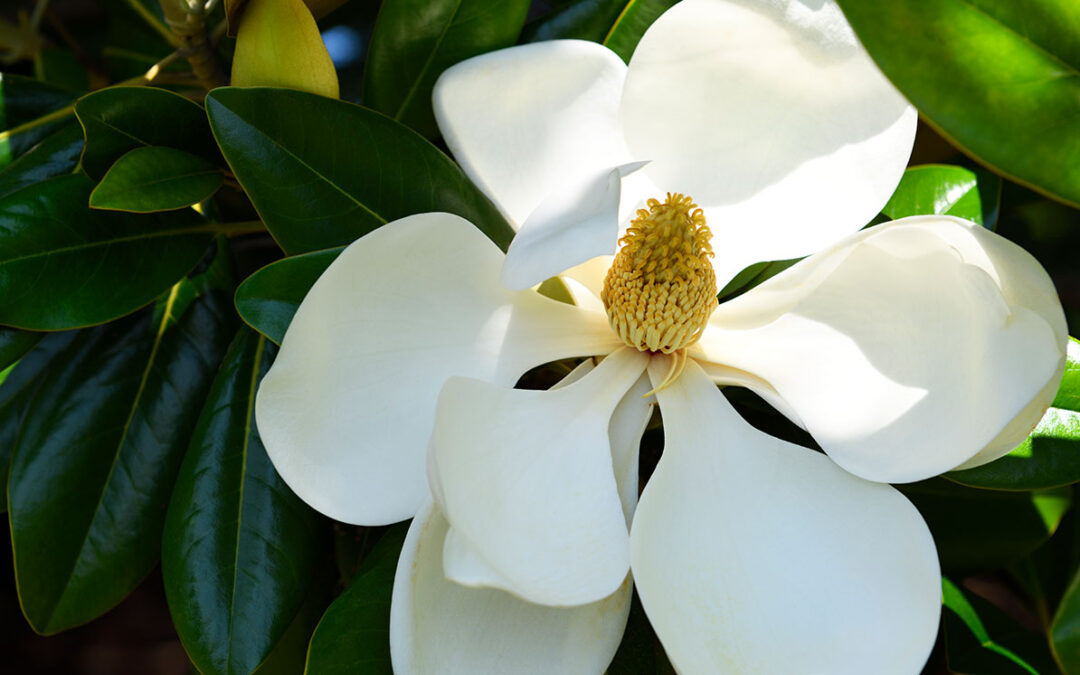The Magnolia of the Magnoliaceae tree family contains some of the oldest existing flowering plants in the world. Magnolias appeared in the fossil record around 100 million years ago. Beetles pollinated the flowers as they do today. Modern magnolias are evergreen, bearing large, colorful cup-shaped and sweet-smelling flowers.

Sugar Magnolia blossoms blooming
Head’s all empty and I don’t care
Saw my baby down by the river
Knew she’d have to come up soon for air
Magnolias are entwined with American culture. A tree in what is today is called Washington, Arkansas, is near the location of a blacksmith who fashioned the first knife for Jim Bowie in the early 1830s. The White House has a magnolia planted by President Andrew Jackson, who transplanted the tree from his home in Nashville, Tennessee. The Grateful Dead popularized the tree in a song called Sugar Magnolia published in 1970. Any kid growing up in the South loves Magnolias because they are fun to climb, play around, and hide in. The name magnolia honors a French botanist, Pierre Magnol, who transplanted the trees in Europe 300 years ago.
While Colorado is not exactly known as Magnolia country, with proper placement, the trees have a decent chance of withstanding early spring freezes. The trees stand out because they bloom before they leaf out. The colors are rich, and the blooms have a spicy, exotic fragrance.
To successfully plant magnolias in Denver, choose a cold-hardy variety, plant it in a protected, well-drained location, and adequately water it, especially during the first few years. The plant site must offer wind protection, so north or east-facing is best. These cooler spots slow flowering in the spring, which helps the tree dodge March frosts. Local garden stores do sell Magnolias. People who want more variety should contact Rare Find Nursery in Jackson, New Jersey, which sells forty types of Magnolias, Nearly Native Nursery in Fayetteville, Georgia, and Plant Me Green Nursery in Monticello, Florida.
Below are cold-hardy Magnolia varieties.
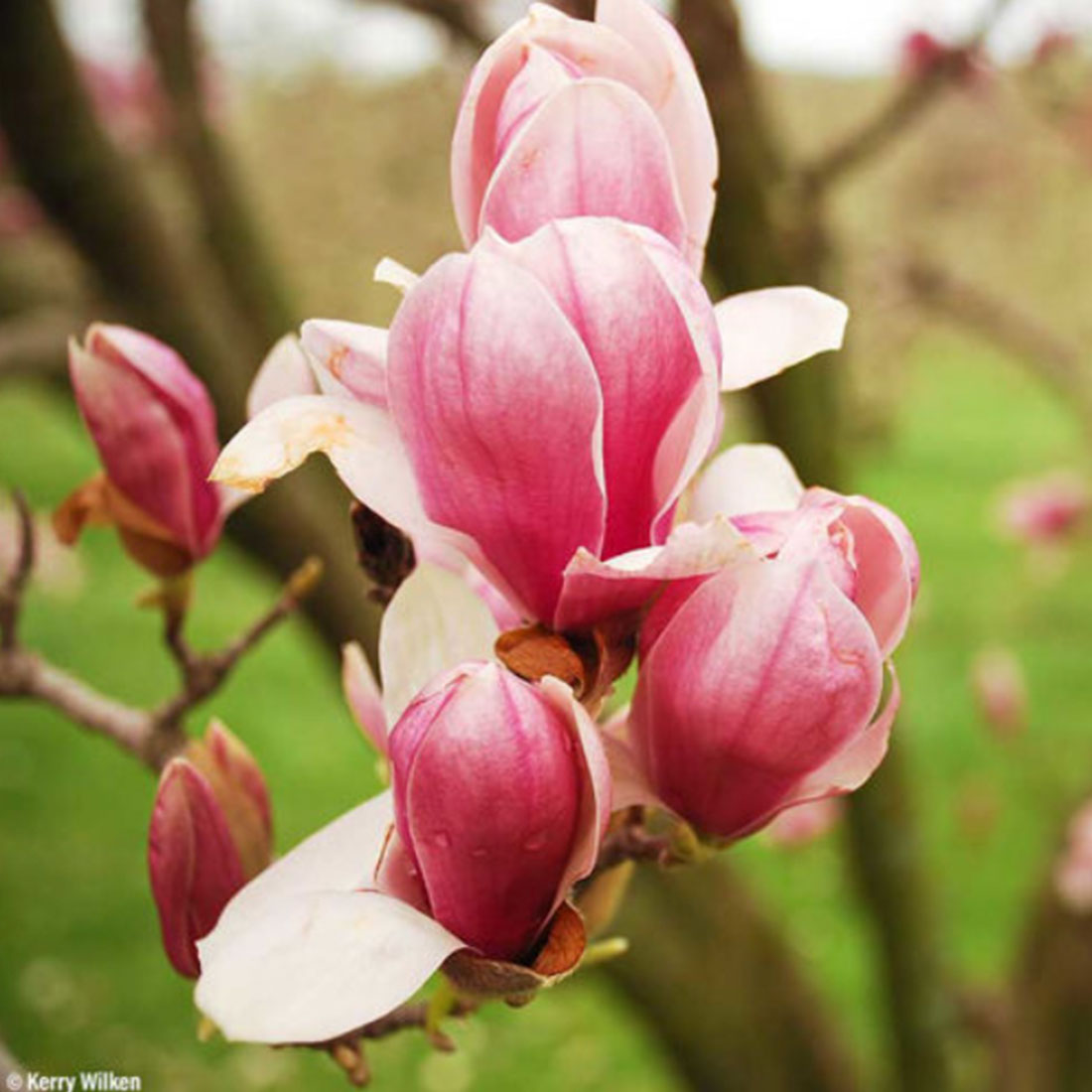
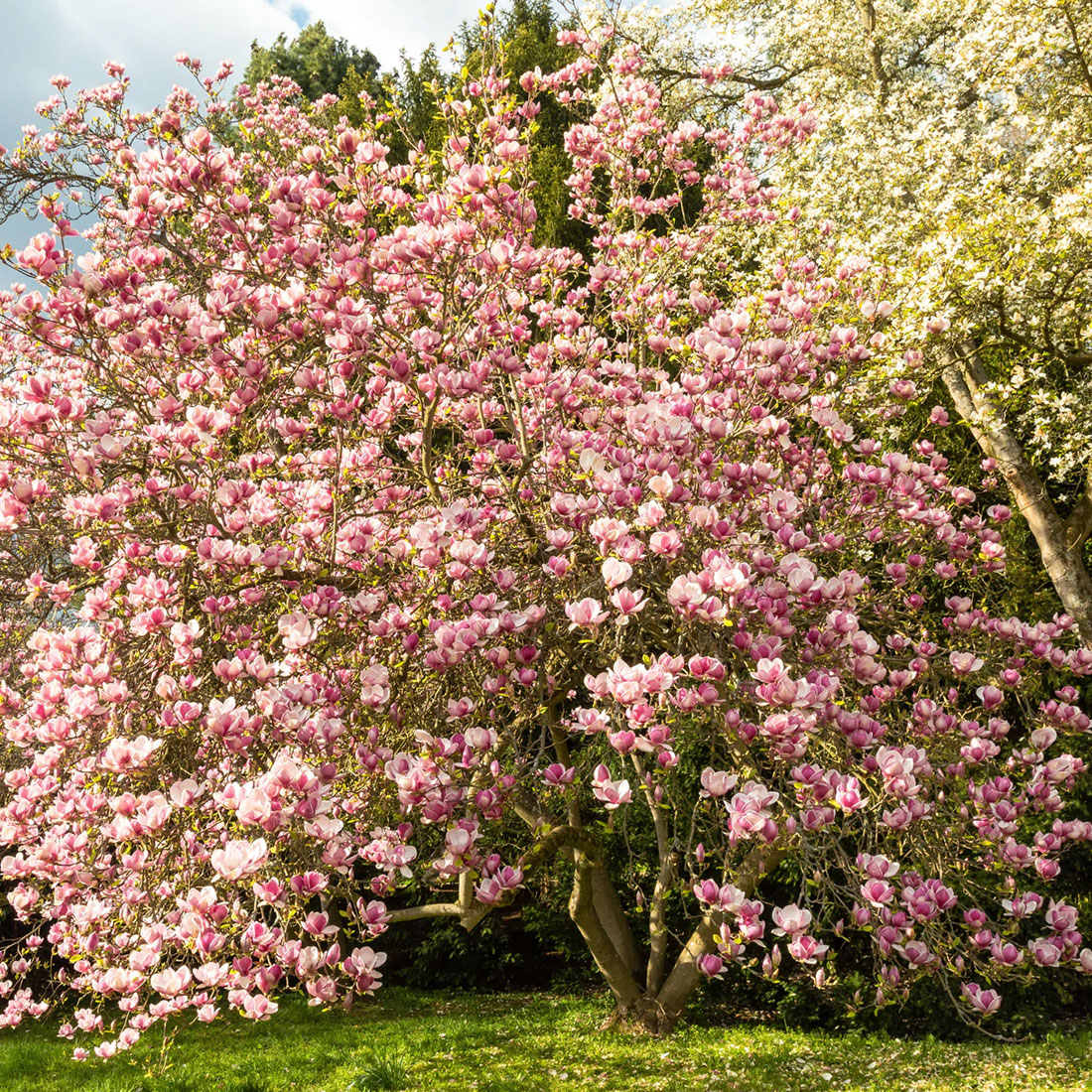
Saucer Magnolia
The most popular Magnolia planted in Denver is the Saucer Magnolia, M. soulangeana. This French hybrid blooms profusely in the spring with large, fragrant pink and white flowers. It bears an elongated fruit that attracts wildlife and birds. The leaves turn a reddish brown before dropping in the fall, leaving an interesting thick interwoven branch structure. The Saucer can grow to a 20′ x 20′ clump with attractive dark green foliage.
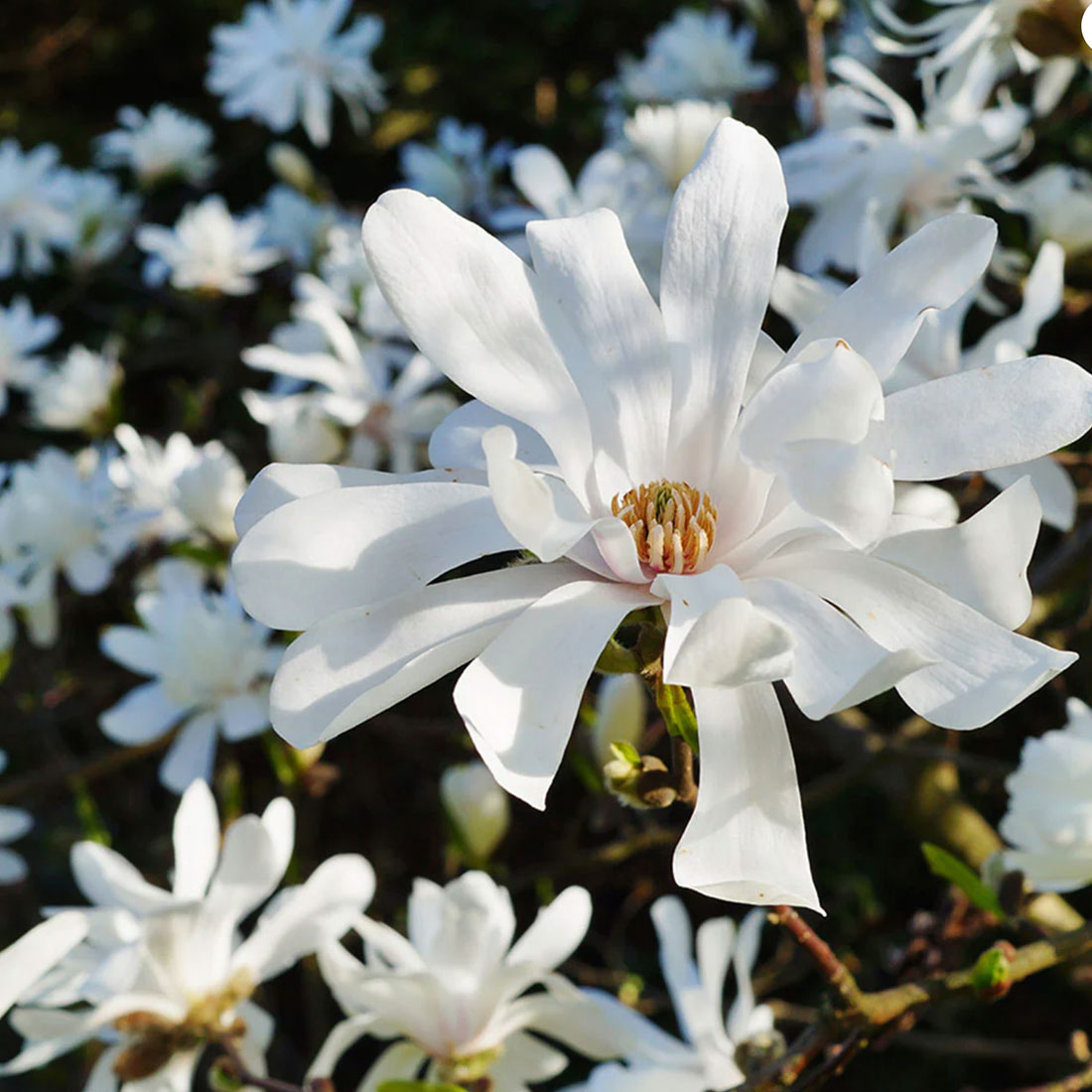
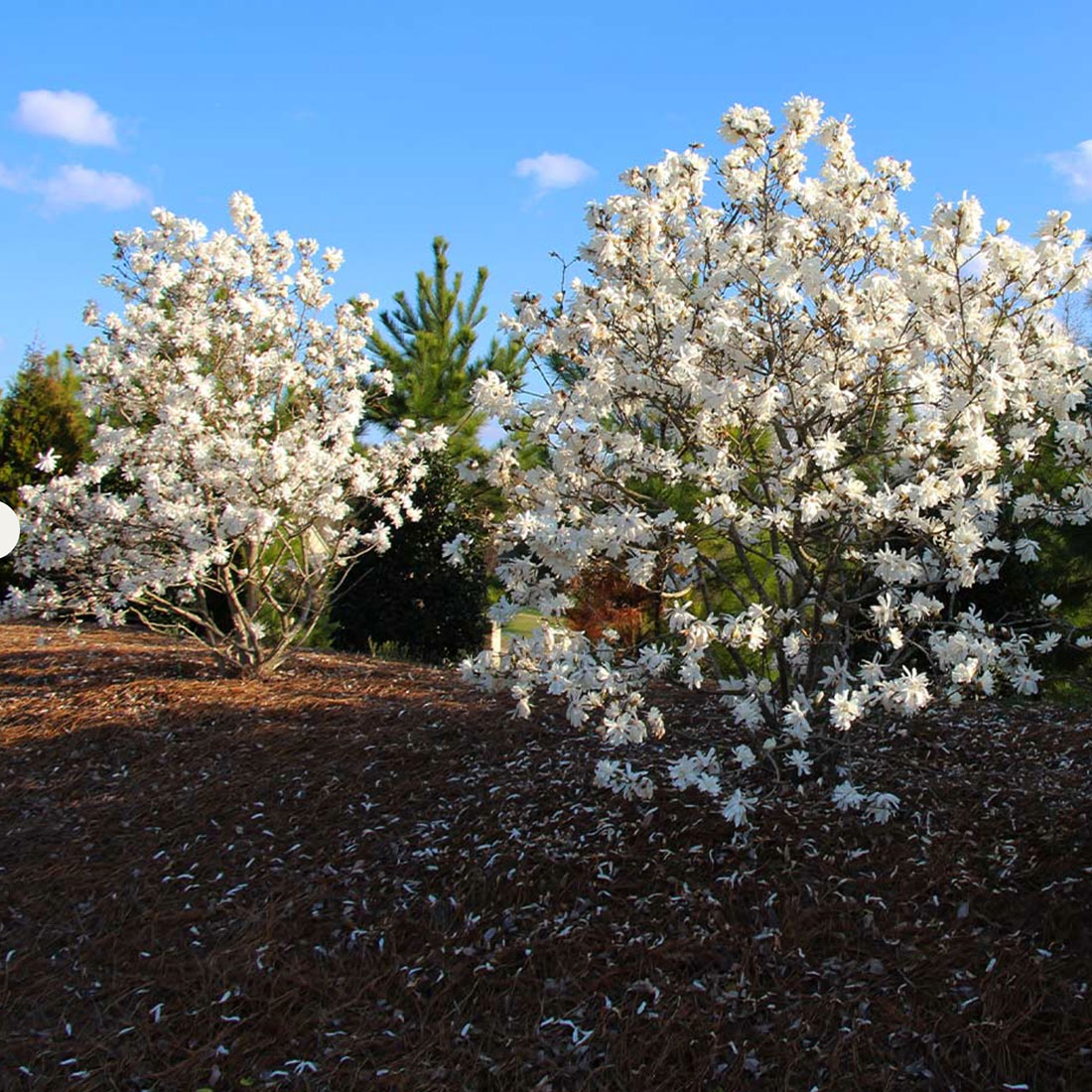
The Royal Star Magnolia
The Royal or Star Magnolia, M. Stellata, is low-growing, medium-sized, flowering deciduous tree with a rounded crown that grows from 15’ x 15’. It is native to Japan.
The tree is know for it compact size and late winter to early spring bloom of star-shaped white flowers. It is the earliest of the deciduous magnolias to flower. In the winter, downy floral buds appear producing clusters of fragrant, 3 to 4-inch white flowers with 12 to 18 tepals. The leaves emerge oblong with a bronze color, turn medium to dark green during the summer months.
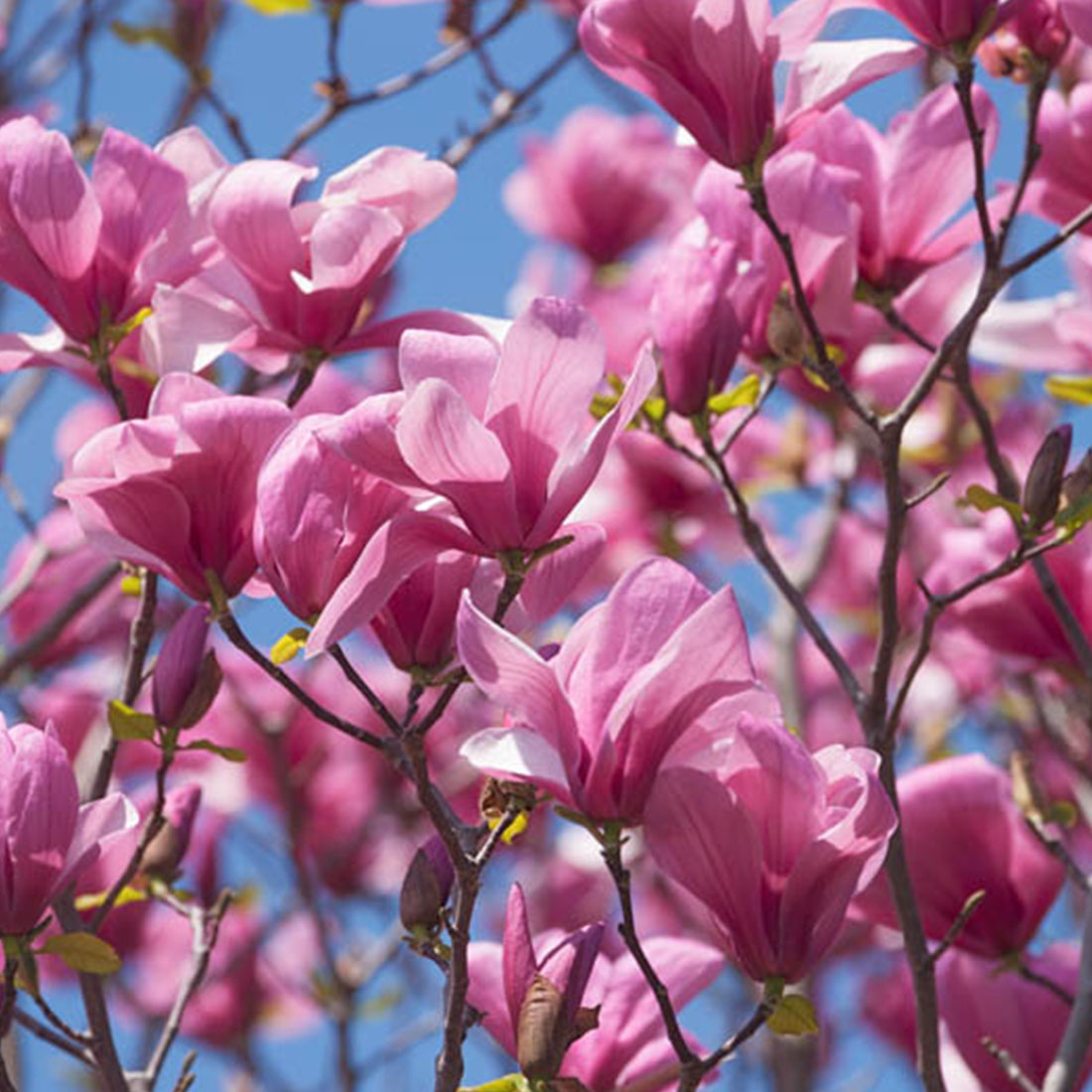
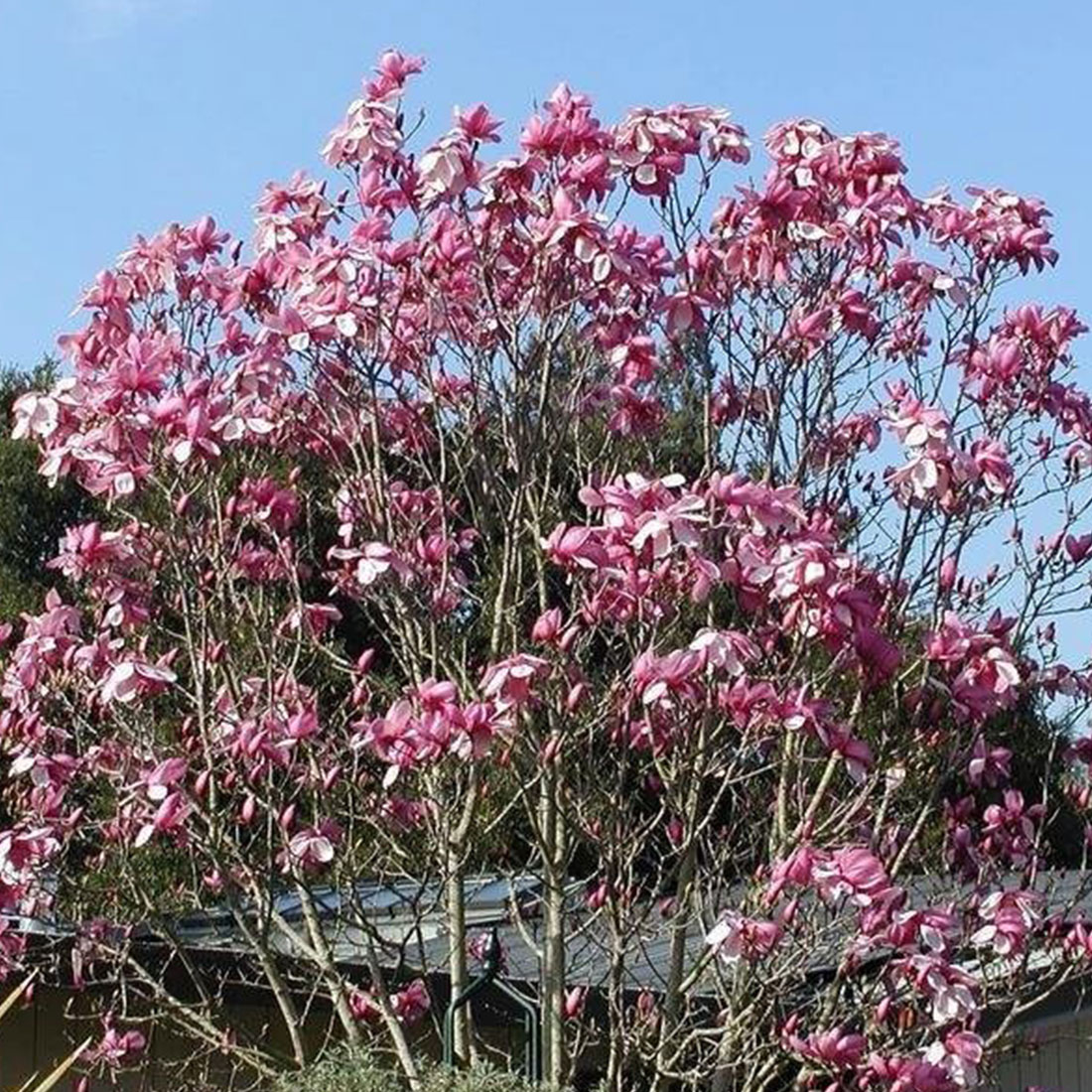
Galaxy Magnolia
The Galaxy Magnolia, M. liliiflora, bred at the National Arboretum in Washington D. C., is a hardy tree with outstanding pink candy-scented blooms. It is a tree-form magnolia with excellent, ascending branching habit that can adapt to tougher soil conditions.
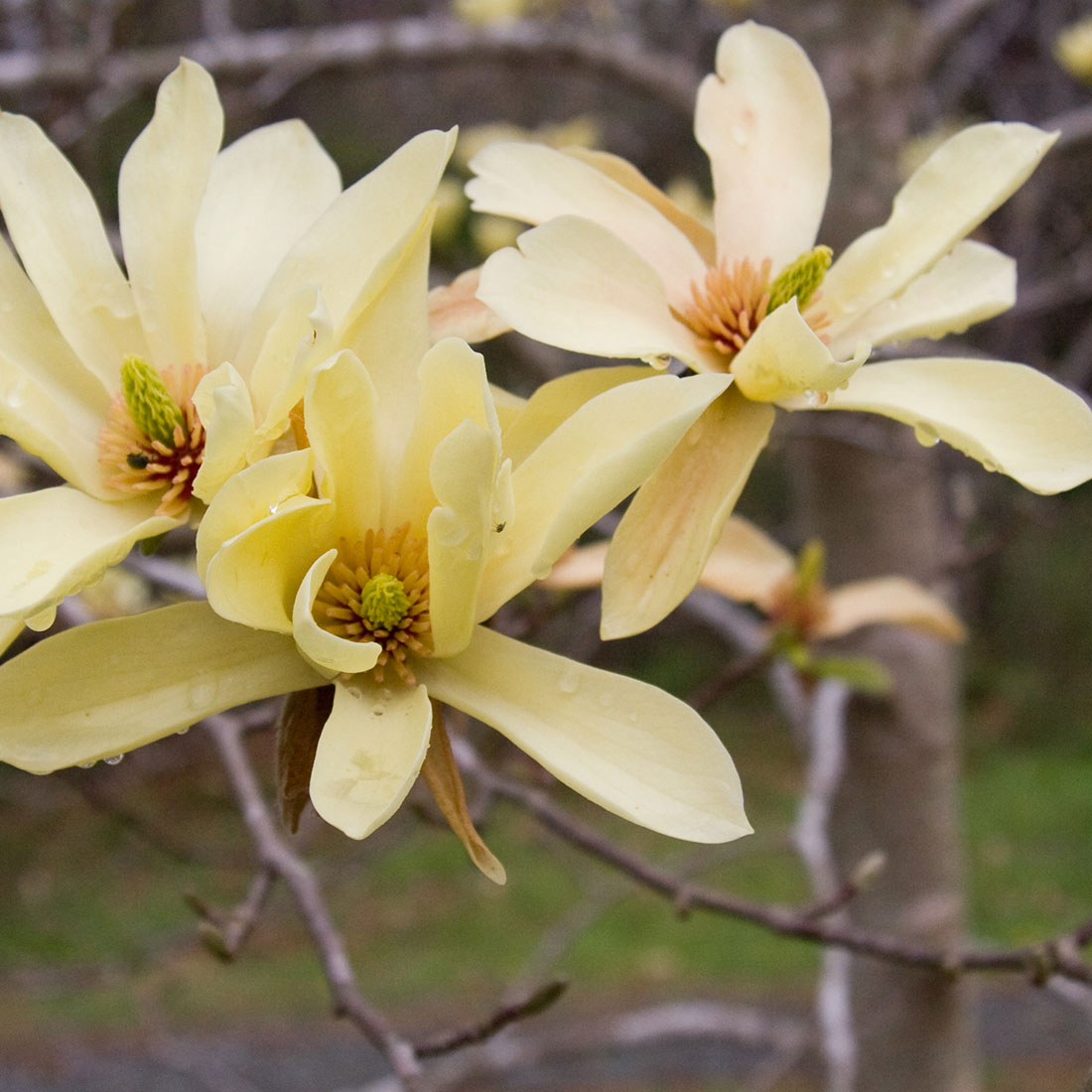
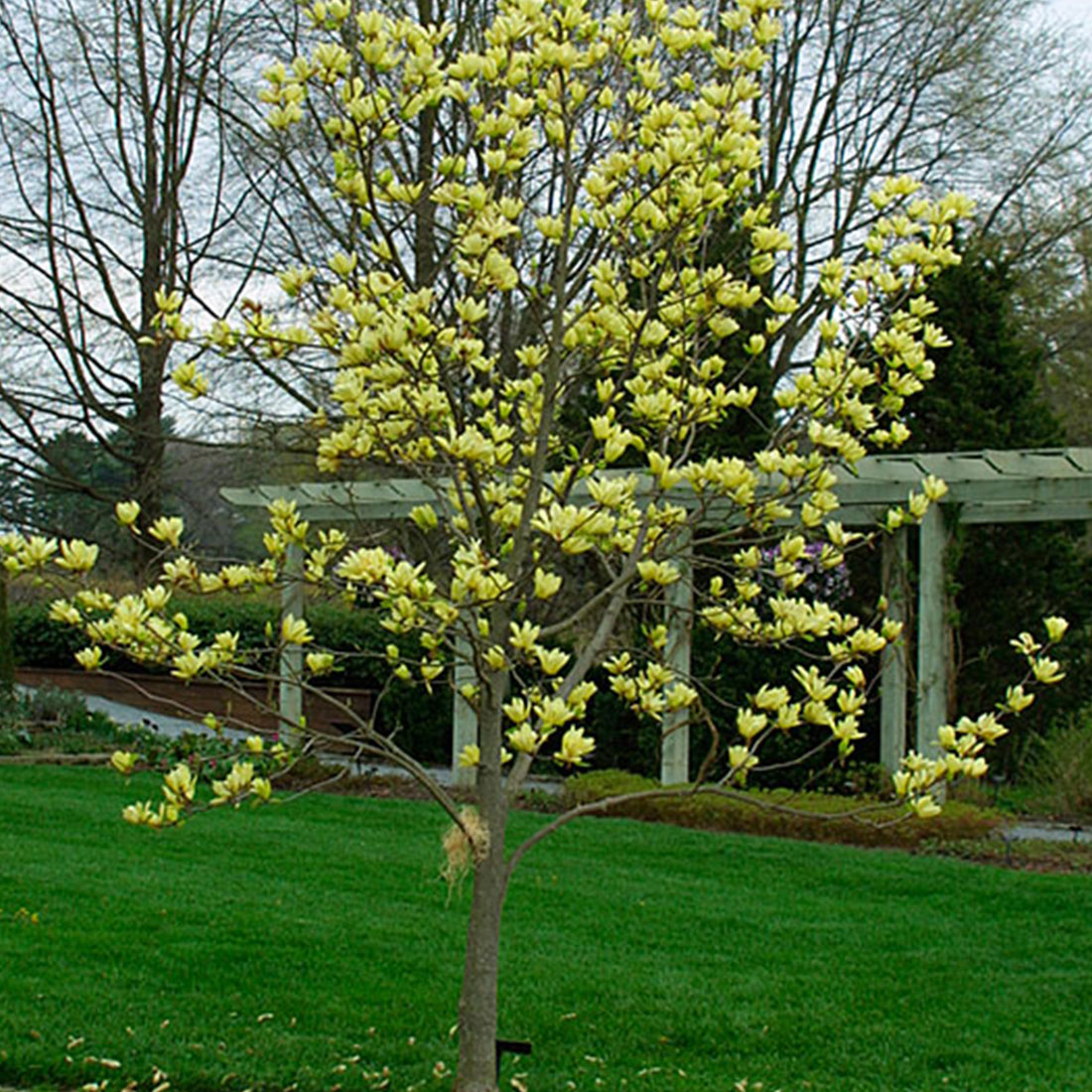
Butterfly Magnolia
The Butterfly Magnolia, M. acuminata or M. denudata, are new to Denver. Their canary yellow flowers float or perch on the graceful branches like butterflies. Their tulip-shaped flowers cover the tree and emit the scent of lemon oil. Sites that have wet or poor drainage will result in poor performance.
View our popular Favorite Tree blog for other trees that Ross Tree customers love.
Ross Tree is a locally owned and licensed Denver service company that has been in business since 1978. We offer standards-based tree and plant health care services to residential and commercial property owners in the Denver area. If you have a tree problem, click here to fill out a request tree service form or call 303-871-9121.

